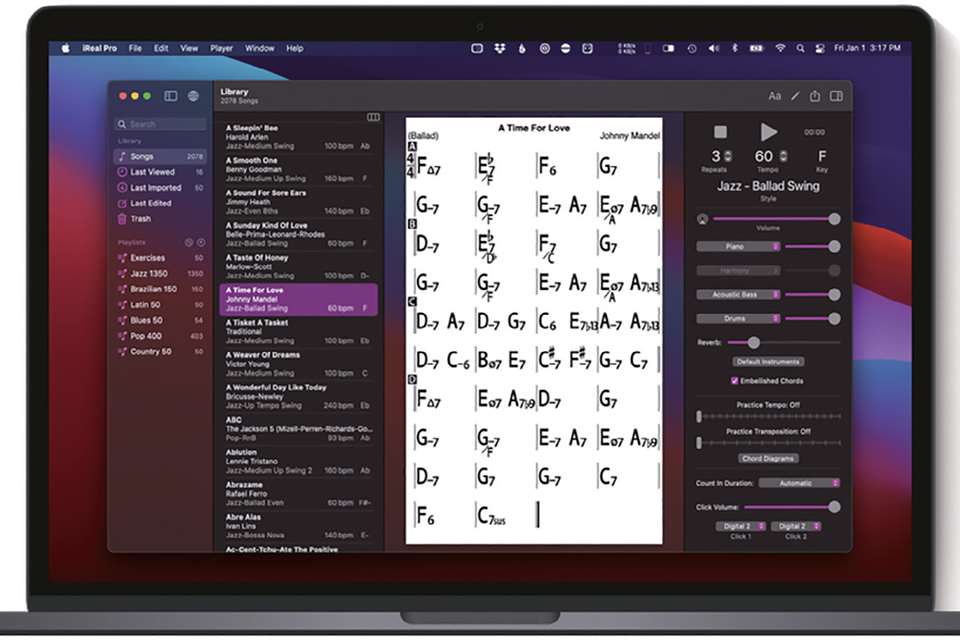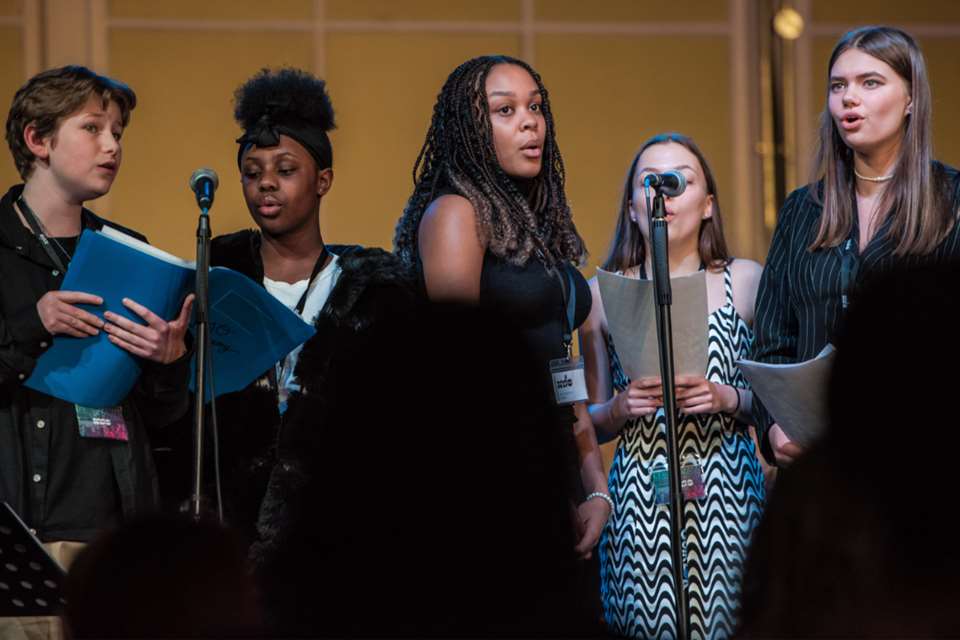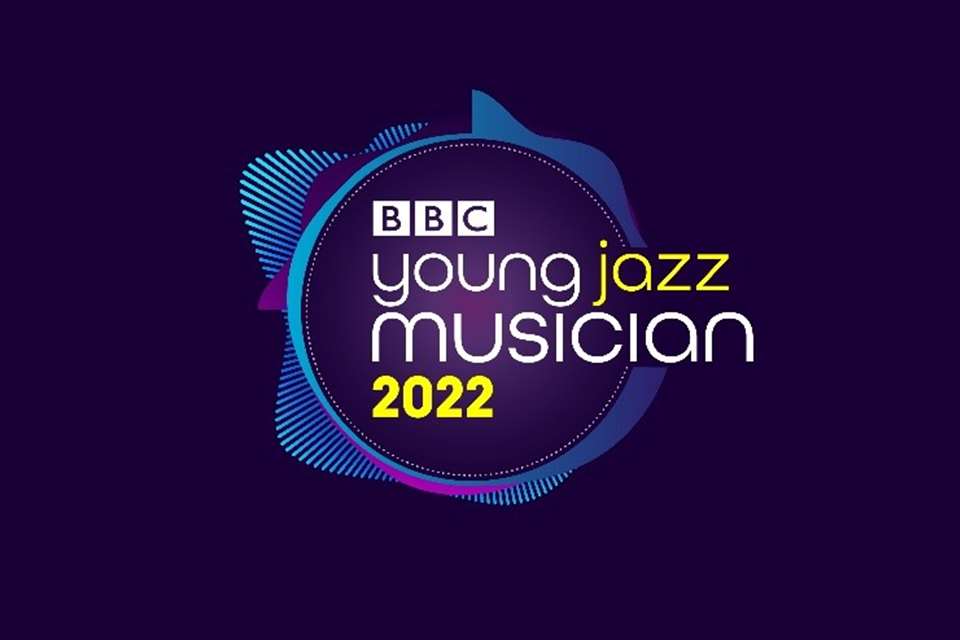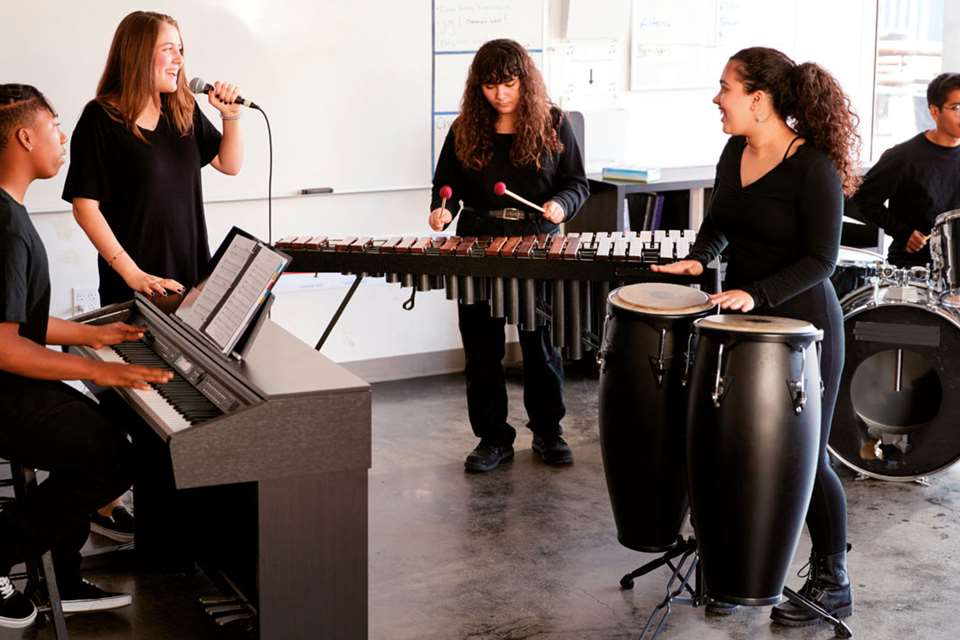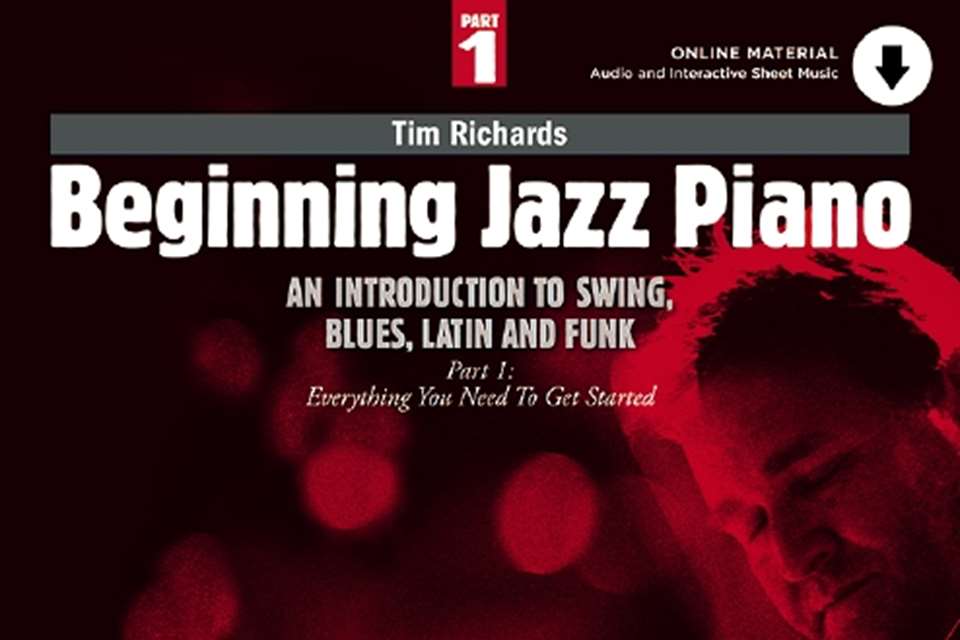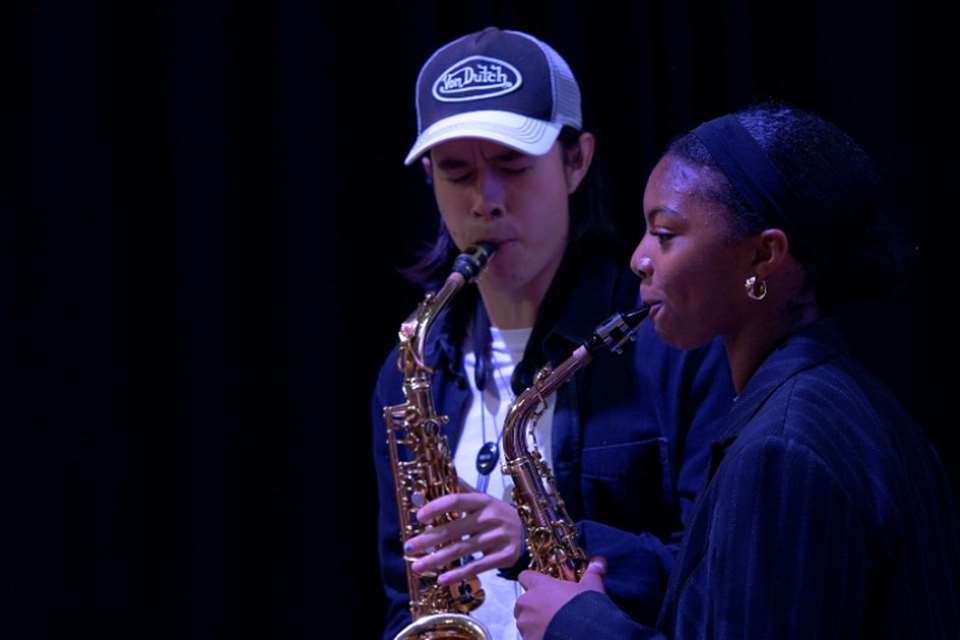Abram Wilson's Future Sound: broadening the future of jazz
Roger Wilson
Wednesday, March 1, 2023
Providing much-needed musical experiences to young people from underrepresented backgrounds, Abram Wilson's Future Sound project is inspiring the next generation of jazz musicians, as Roger Wilson reports.

Abram Wilson / Clive Hunte
The saying goes, ‘if you can see it, you can be it’. As a young Black boy, I aspired to be a footballer – so did most other young Black boys at the time. Back then it was difficult to see too many Black role models in British society that plied their trade outside of sport (male or female). We know that role models can have a considerable impact on career and life choices for a young person, both positively and negatively.
The 2021 Black Lives in Music (BLiM) report Being Black in the UK Music Industry tells a narrative of challenge, right from the get-go, for young people of colour looking to realise their aspirations of working in the UK music sector. A staggering 86 per cent of the report's respondents believe there are barriers to progress for people of colour in the music industry. When I recently presented some of the report findings to a group of experienced classical music professionals, they found the numbers too fanciful to believe. It's difficult to understand the plight of others without walking a mile in their shoes.
Abram Wilson
An organisation that understands the experience of those from underrepresented groups is the Abram Wilson charity (AW). This organisation was founded by Jennie Cashman Wilson in tribute to her late husband Abram, a fantastic musician and educator. I had the pleasure of meeting and working with Abram, who was a dynamo brimming with ideas. Jennie's work to establish AW has encapsulated his energy and vision. AW has cut a niche for itself in developing jazz careers, including those of Sheila Maurice-Grey and Cassie Kinoshi. Progress in this industry is of course considerably harder for Black women. It's both heartening and uplifting to hear of these success stories.
Future Sound
One of their headline projects is the Future Sound programme. This is designed to address the challenges for those lacking privilege and the barriers to progressing in music. It provides role models to help develop their skills and aspirations. The programme has three distinct strands: Future Sound Live, Future Sound Records and Future Sound Digital. The programme has been running for four years and is aimed at children and young people aged 11–18. During this time, more than 650 young people have taken part in over 550 hours of workshops in economically disadvantaged areas of London and Birmingham.
Future Sound Records is a great opportunity for young people to create and record their music in professional studios. Future Sound Digital is freely available to anyone on YouTube and is a fantastic way to learn. It has free videos on song-writing and illuminates the pathway for a professional musician. There is also a comprehensive library of online learning resources for all abilities, with both creative and practical online tutorials.
Future Sound Live involves a collective of six jazz musicians, with different specialisms and experiences, working with 20 young people. Many of the musicians can identify with the participants through their own life experiences. There are six sessions, a composition day, then a performance day where the fruits of this collaboration are heard publicly by friends, family, school representatives and industry people – the house is inevitably sold-out. There are more than 30 hours of learning and practical activity on offer for those taking part. The students get to experience what it's like to be a musician, develop compositions that are inspired by their own influences, and, importantly, perform in a professional space that's local to them. In a nutshell, those involved gain an insights into a career they may have thought unattainable. The hands-on, practical and fun approach gives a heightened sense of ownership and empowerment.
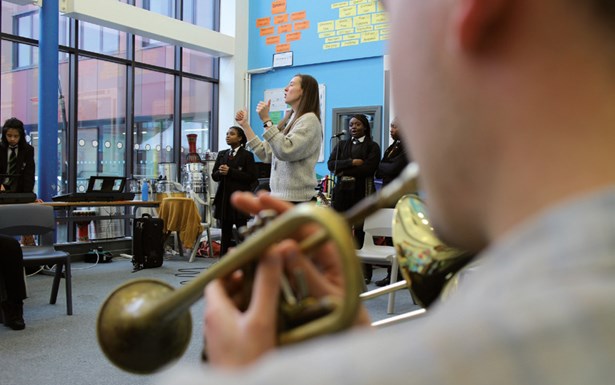 © Abram Wilson/ Clive Hunte
© Abram Wilson/ Clive Hunte
A Future Sound Live session
Representation matters
As part of the project, the visiting musicians prepare a special performance for the wider student community. I took a moment to speak with an old friend and hugely talented musician, Emma Johnson. Based in Leeds, Johnson is a jazz saxophonist, recorded artist and beneficiary of the charity, having been involved in its career development programme. She led one Future Sound Live project in Manchester and is soon to lead the next iteration. Talking to Johnson, I was struck by her passion for the project. She talked openly about the near priceless value of role models and the clear benefit there is in engaging young people in projects like Future Sound. In this regard, female jazz musicians have done much to inspire girls and young women in recent years, placing the issue of gender equality on the table. From an educational perspective, seeing a talented young musician such as Johnson lead a Future Sound session can have a lasting impression.
Lucy Watkins, head of Programmes and Impact at Abram Wilson, told me she once heard a girl at the end of a composition day say: ‘Imagine if you could do this as a job!’. The musician explained it was her job. Knowing something is possible is empowering for any individual; for children and young people, the potential to succeed through these experiences can be game-changing.
Learning and developing skills
While participants come to the project with developing musical skills, their impressive progress and final product is matched by the levels of confidence the young people develop. For some, this is the first time they will have seen a live performance let alone be involved in one! With Johnson and her colleagues, musical communication is liberating and facile; notation is nowhere in sight – learning and creating is achieved through a completely dynamic aural process.
I was pleased to learn more about the robust framework of support for the project team. They receive regular feedback as well as project design and delivery support. I was touched to hear Johnson talk about the power of collaboration and the message that all involved in Future Sound can't help but take this onboard.
Funding where it is needed
Projects like Future Sound are mutually rewarding for participants and educators. Johnson talked about the tangible impact the project had on the self-confidence of participants, as well as on their listening and team-working skills. The progress the young people make in eight weeks is simply remarkable. Johnson is hopeful that activities like this will help young people think more about a career in music and taking that next step into practical music-making. They may even think about taking GCSE music (should the individual be lucky enough to attend a school offering this). It's heartening to know that projects like this are happening to support so many young people with ambitions.
That sentiment is tempered by the financial vulnerability of organisations like Abram Wilson. Consistent funding for the remarkable work that they do is imperative for the high-quality music education that all children and young people should be entitled to. Government support for music and the arts appears to be in a death spiral. The glory days of free music education, which was once my own salvation, are unlikely to return anytime soon. Without inspirational programmes like Abram Wilson's Future Sound and their tireless energy, those born into a world without privilege are destined to a pathway of diminishing hope. We should acknowledge and shine a bright light on these organisations and the impressive work that they do.


